Clear skin isn’t in the 10-step routine, it’s in the basics you keep ignoring.
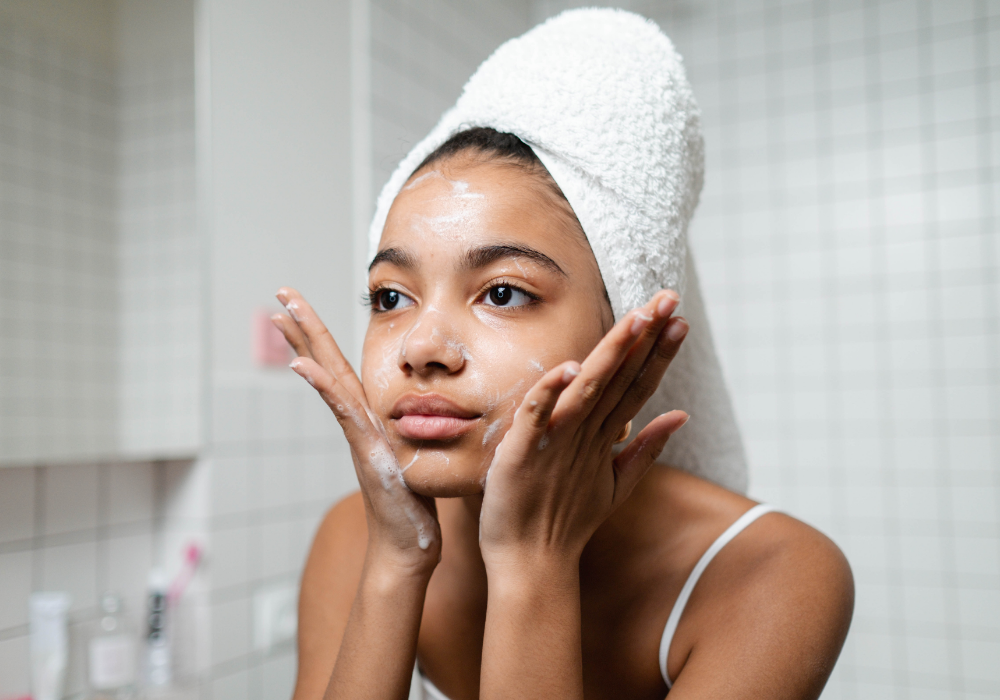
Skincare isn’t supposed to be this stressful. Somewhere between the $90 serums, ingredient jargon, and TikTok routines with more steps than a wedding dance, it stopped being self-care and turned into self-doubt. Everyone’s pushing “holy grail” products, and somehow your bathroom cabinet is full—but your skin’s still confused. The truth? Most of what actually makes a difference isn’t flashy, complicated, or even that expensive.
Clear, calm skin usually comes from doing less—but doing it consistently and with stuff that actually makes sense for your face. These aren’t magical hacks or celebrity-endorsed miracles. They’re the simple, boring, proven things that work. They don’t promise perfection, but they do give your skin a fighting chance without draining your wallet or your sanity. If you’ve been spiraling in skincare overload, this is your reminder to reset—and focus on what actually matters.
1. Washing your face correctly is still more important than what you put on after.
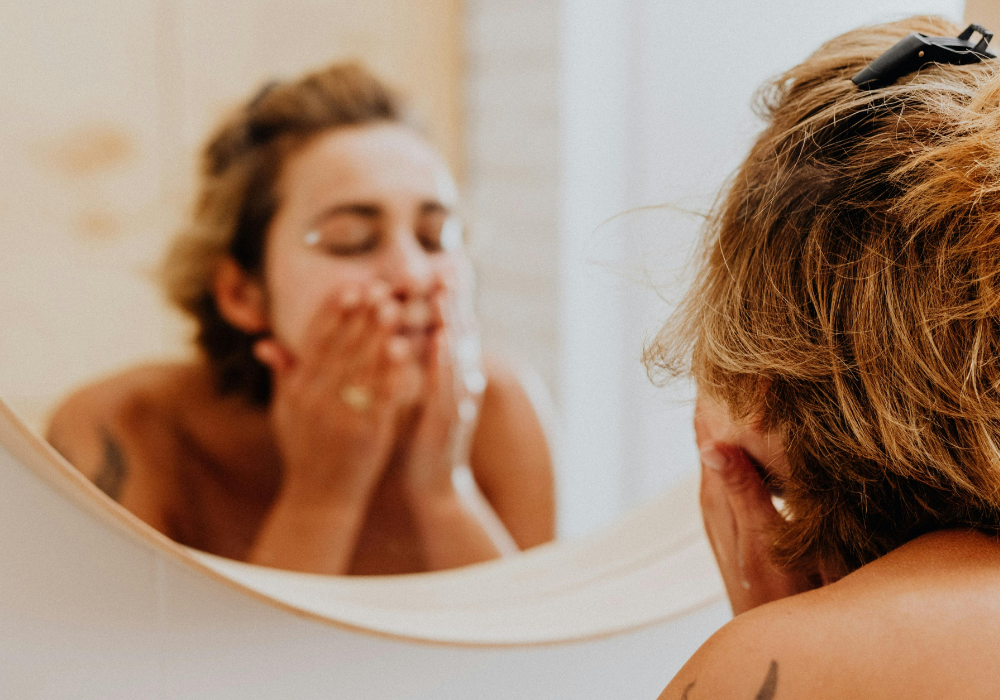
Cleansing might sound like the most basic part of your routine—but it’s also where most people mess up. Too harsh, too often, or just skipping it entirely (hi, makeup wipes) can mess with your skin barrier and set off a whole chain reaction of breakouts, dryness, and irritation. According to dermatologists interviewed by Healthline, using harsh cleansers or over-washing can damage the skin’s natural barrier, causing dryness, sensitivity, and even more breakouts.
Use a non-stripping cleanser that suits your skin type—gel, cream, oil, whatever works—and stick with it. Clean doesn’t have to mean foamy. Massage it in for a full 30 seconds and rinse with lukewarm water. Over-cleansing is a thing, too, so if your skin is dry or sensitive, you might only need to wash once at night. Get this part right, and the rest of your routine has a real shot at actually doing something.
2. Sunscreen is your ride-or-die—everything else is optional.
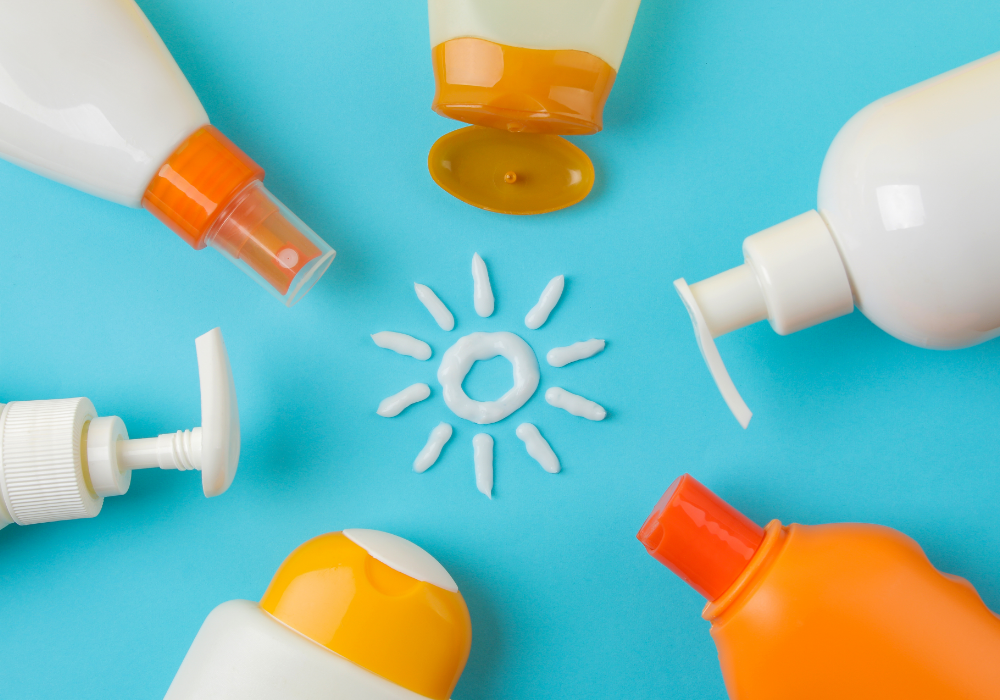
If you only do one thing for your skin, let it be sunscreen. No serum, mask, or trendy gadget can undo the damage from unprotected UV exposure. Sunlight breaks down collagen, causes hyperpigmentation, triggers sensitivity, and accelerates aging faster than anything else. Per writers for the Skin Cancer Foundation, daily use of sunscreen reduces overall UV exposure and lowers the risk of skin cancer and sun damage.
Daily sunscreen isn’t just for beach days. It matters on cloudy mornings, quick errands, and through car windows. The key is finding one you actually like wearing—lightweight, non-greasy, and comfortable enough to use every day without hesitation. Reapplication matters too, especially if you’re outdoors or sweating. Make it part of your routine, like brushing your teeth. If you’re skipping SPF, everything else you do is just damage control.
3. Your skin barrier is your best friend—stop wrecking it with harsh products.
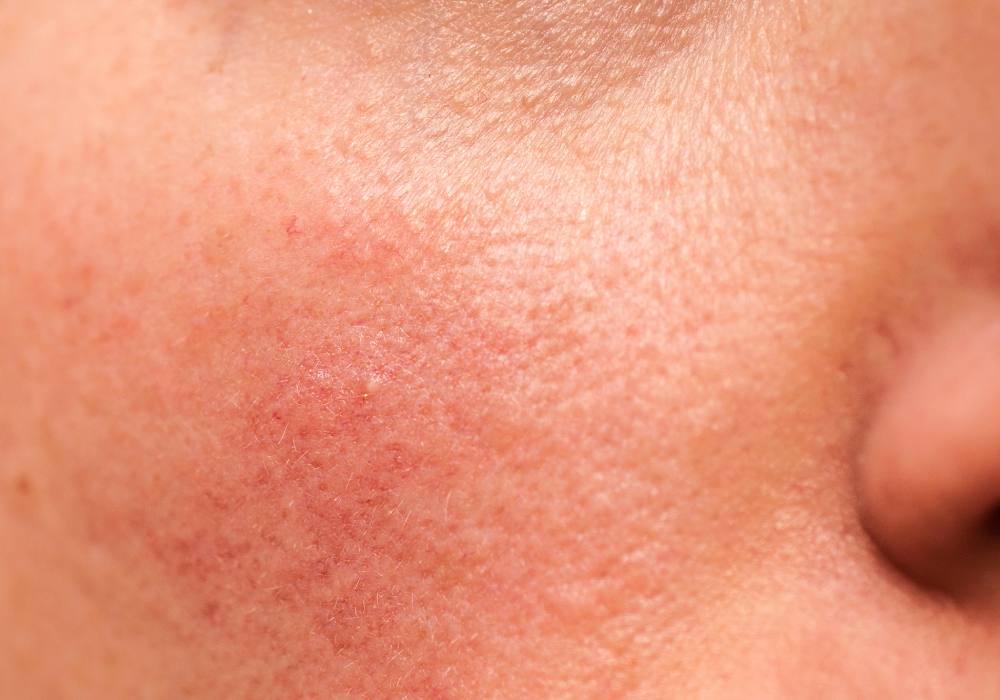
Everyone wants fast results. But over-exfoliating, scrubbing, or using too many actives at once? That’s how you burn your skin out—literally. Redness, flaking, tightness, unexpected breakouts? That’s your skin barrier waving a white flag.
It’s easy to fall into the trap of more = better, but strong, healthy skin starts with protecting that barrier. Researchers for the Cleveland Clinic state, over-exfoliating or using harsh products can damage the skin barrier, leading to increased dryness, sensitivity, and breakouts.
Your skin barrier is the shield that keeps moisture in and irritants out. When it’s damaged, everything else you use becomes less effective—and your skin becomes way more reactive. Give it some love. Ease up on strong acids if your face feels raw. Look for ingredients like ceramides, niacinamide, and fatty alcohols. Use a moisturizer that actually replenishes instead of just sitting on top. A healthy barrier makes your skin more resilient, less inflamed, and way easier to manage. It’s not glamorous, but it works.
4. Consistency will always beat whatever “miracle product” is trending.
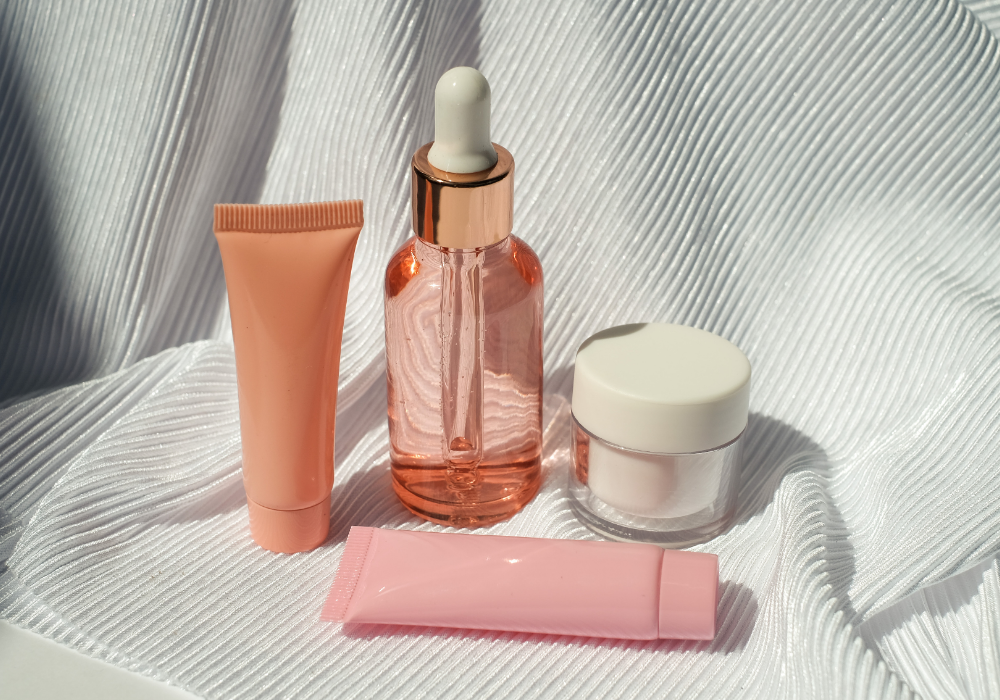
It’s tempting to chase the next big thing—especially when every influencer is swearing a new serum changed their life. But skin doesn’t respond to chaos. It needs time, consistency, and a break from the product whiplash. Most ingredients take weeks to show results. Switching things up constantly just resets the clock—and can make problems worse.
Pick a routine that fits your skin and your lifestyle. Then stick with it. Don’t panic-switch after one breakout. Don’t add seven new steps because you watched a YouTube haul. Let your skin adjust, respond, and stabilize. That boring bottle of drugstore moisturizer you’ve used every night for six months? It’s probably doing more for your skin than the $120 “brightening concentrate” you used twice. Trends come and go, but skin thrives on stability. And that’s something you can’t rush—or buy.
5. Moisturizer isn’t optional, even if your skin is oily.
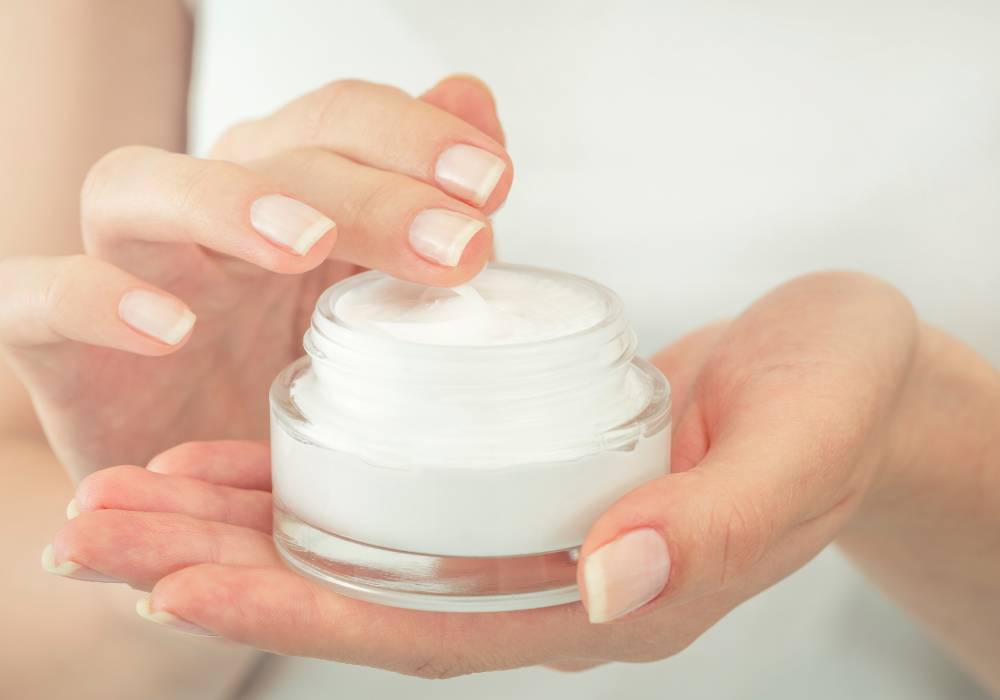
Oily skin doesn’t mean your face is hydrated. In fact, skipping moisturizer can make your skin produce even more oil to compensate for what’s missing. It’s not about slathering on a heavy cream—it’s about using the right kind of hydration for your skin type. Gels, lotions, creams—there’s a formula out there that won’t clog you up or make you shine like a disco ball.
A good moisturizer keeps your skin barrier healthy, locks in hydration, and helps active ingredients do their job better. Think of it like sealing the deal after everything else in your routine. If your skin still feels greasy after applying it, try a lighter formula—not skipping it altogether. And yes, you still need it in summer. And yes, even if you don’t feel “dry.” Moisture is about balance, not excess. Don’t skip it—you’ll feel the difference when you stop.
6. Over-exfoliating is wrecking more skin than it’s saving.
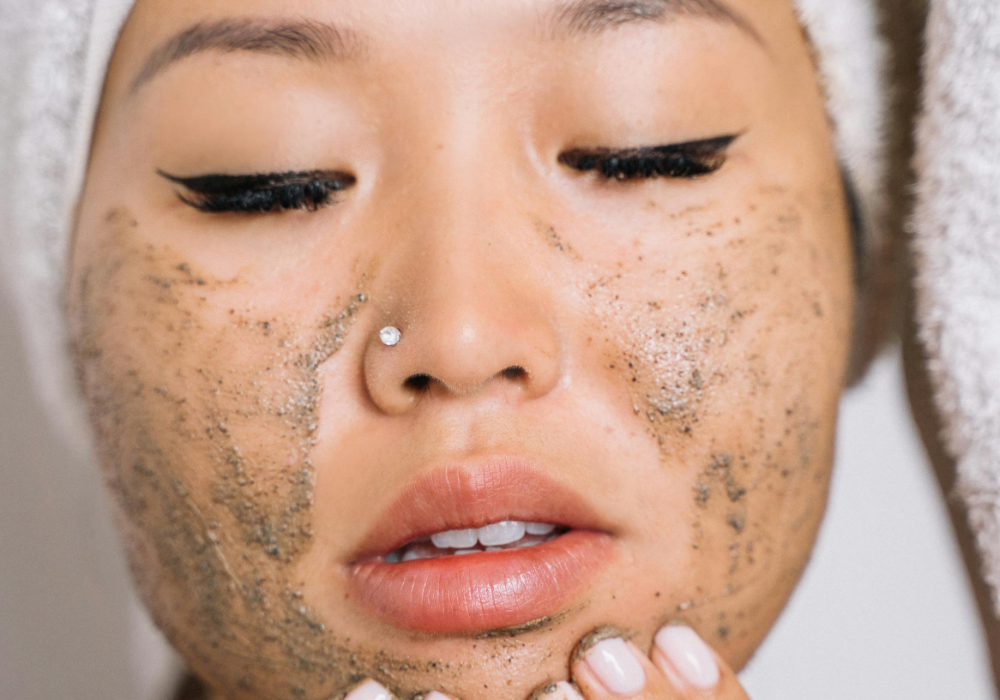
Scrubs, AHAs, BHAs, retinoids—every product promises glow, but too much at once just turns your skin into a peeling, angry mess. Exfoliation is supposed to support your skin, not strip it raw. If your face constantly feels tight, flaky, or stings when you apply moisturizer, that’s not “purging”—that’s your skin begging for mercy.
Most people only need to exfoliate 1–3 times a week, max. And even then, it depends on your skin type, the strength of the product, and what else you’re using. More isn’t better. It’s just more damage.
Choose one exfoliating step and keep the rest of your routine calm and nourishing. If your skin looks dull, it might need hydration more than acids. Take a break from harsh treatments and watch how much happier your skin becomes. Sometimes, the best thing you can do is stop trying so hard to fix what isn’t broken.
7. Drinking water helps—but it’s not your main solution for dry skin.

Hydration is important, yes. But the idea that drinking more water will magically cure dry skin? Total myth. Skin needs external hydration, too. That means using products with humectants like hyaluronic acid, glycerin, or aloe to pull moisture in—and emollients or occlusives to seal it there. Without topical support, your skin just keeps losing water no matter how much you sip.
Staying hydrated internally supports overall health, but it won’t fix flaky skin if your barrier’s compromised or your products are too drying. Focus on both sides of the equation: drink water and use hydrating, barrier-repairing skincare. If your environment is dry (hello winter), consider a humidifier. Moisture loss isn’t just about what you put in—it’s about what your skin can hold onto. So, yes, refill that water bottle—but don’t expect it to do all the work on its own.
8. Layering too many actives is why your skin is freaking out.
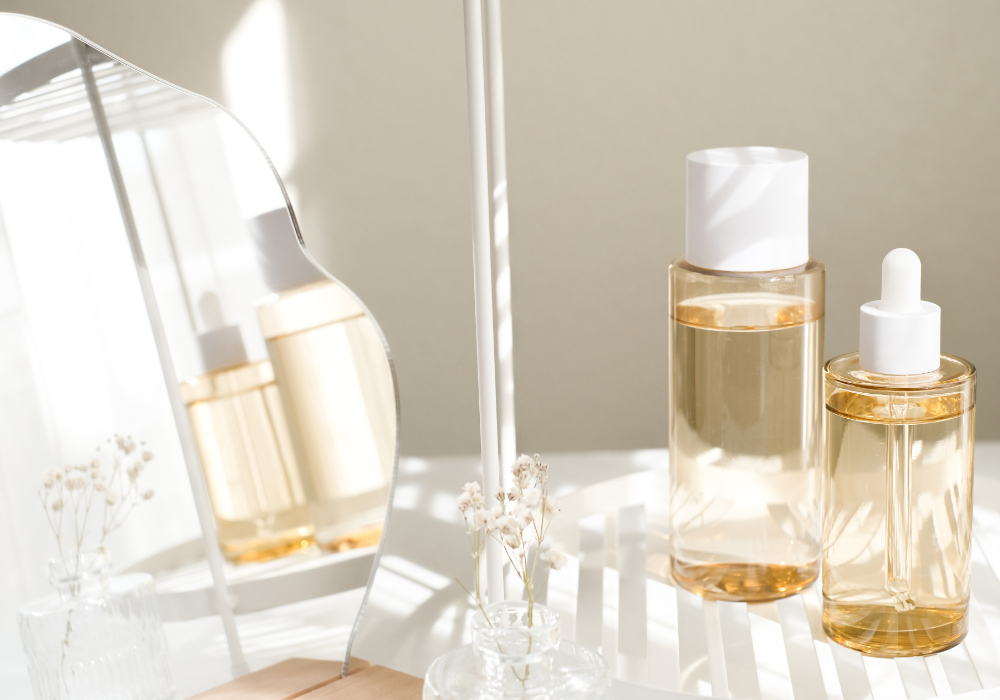
Using retinol, an acid toner, a brightening serum, and a vitamin C cream at the same time sounds like dedication—but it often leads straight to irritation, breakouts, or weird texture that won’t go away. Mixing actives without a clear plan overloads your skin and throws it off balance fast. More isn’t just unnecessary—it’s often counterproductive.
Each active ingredient has a purpose, but piling them on without understanding how they interact usually ends in chaos. Give each one room to breathe. Alternate nights. Start slow. Space them out. Your skin will thank you.
Focus on one issue at a time, whether it’s acne, texture, or dullness—not all of them at once. It’s a routine, not a race. Simplicity is underrated. If your skin is in meltdown mode, strip back to basics and rebuild from there. Sometimes healing starts with subtraction, not addition.
9. Fragrance might be the invisible reason your skin is irritated.

It smells nice, sure—but fragrance in skincare is one of the most common culprits behind redness, itching, and random flare-ups. You might not even realize it’s the issue because reactions can be subtle or delayed. If your skin always feels a little off, especially if it’s sensitive or reactive, check the label. “Fragrance” or “parfum” near the bottom? That might be your problem.
Even “natural” scents from essential oils can be irritating to some skin types. Just because it’s botanical doesn’t mean it’s gentle. Going fragrance-free doesn’t mean giving up nice products—it means prioritizing comfort over vibes. Your skin doesn’t need to smell like lavender fields or citrus groves to be healthy. If you want scent, keep it in your body wash or perfume. When it comes to your face, less is usually more—and fragrance is often less than helpful.
10. What you eat shows up on your skin more than you think.

No, you don’t need to cut out entire food groups or survive on green juice. But your skin is an organ, and like every other part of your body, it reflects what’s going on inside. Inflammation, nutrient deficiencies, blood sugar spikes—they can all play a role in how your skin looks and feels. That breakout might not be because of your cleanser. It might be the third night in a row of barely sleeping and surviving on chips and caffeine.
Focus on adding things, not restricting. More water, more colorful fruits and vegetables, more healthy fats. Omega-3s, antioxidants, zinc, and even protein can help support your skin from the inside out. The occasional pizza isn’t going to ruin your face, but if your skin’s constantly acting up, it might be time to check what’s fueling you. Skincare helps, but food is part of the equation, too.
11. Sleep and stress management are the underrated skincare heroes.

All the skincare in the world won’t undo what a lack of sleep and constant stress can do to your face. Dark circles, puffiness, breakouts, dullness—when your body is overworked, your skin tells the story. And no serum can compete with cortisol running wild through your system. This is the part of skincare no one wants to talk about, because it’s not something you can buy.
Start small. Better sleep routines. A few deep breaths before bed. Getting outside. Turning off your phone an hour earlier. Stress and exhaustion don’t just make you feel worse—they change how your skin behaves. If your routine isn’t working, it might not be your products. It might be your lifestyle showing through. And the fix isn’t another step on your shelf—it’s giving yourself actual rest, consistently.
12. Your skin is unique—so stop copying what works for everyone else.

It’s easy to fall into the comparison trap. Someone’s glowing on TikTok, someone else swears a product changed their life, and suddenly you’re wondering if you’re missing out. But skin isn’t one-size-fits-all. What works for your best friend or a beauty influencer with a ring light might completely wreck your face. That doesn’t mean your skin is broken—it just means it’s yours.
Start paying attention to your own patterns. Notice what triggers irritation, what feels good, what actually improves things. Keep it simple. Trust your own feedback more than reviews. You don’t need a trending product or a 12-step lineup to have great skin. You need patience, consistency, and the willingness to listen to what your face is trying to tell you. The most effective skincare routine isn’t the one that looks impressive—it’s the one that actually works for your life.